
BUSINESS:
IKEA Announces It Will No Longer Accept Cash in Thailand
INTERNATIONAL:
Denmark and Vietnam Strengthen Green Strategic Partnership
COMMUNITY: Nordic service in Bangkok brings light and laughter to Easter Sunday








BUSINESS:
IKEA Announces It Will No Longer Accept Cash in Thailand
INTERNATIONAL:
Denmark and Vietnam Strengthen Green Strategic Partnership
COMMUNITY: Nordic service in Bangkok brings light and laughter to Easter Sunday






Fifty years after the end of the Vietnam War, Sweden and Vietnam stand as partners not only in trade, but in trust. What began as a bold diplomatic gesture in 1969—when Sweden became the first Western country to recognize North Vietnam—has matured into a resilient, multifaceted relationship grounded in shared values and a long-term vision for sustainable development.
Sweden’s early support for Vietnam was more than diplomatic rhetoric. It took the form of concrete, lasting contributions—from the Bai Bang paper mill and mobile field hospitals to major healthcare institutions like the National Children’s Hospital in Hanoi and the Uong Bi General Hospital. These projects were investments in a better future for Vietnam, and they remain enduring symbols of Sweden’s solidarity when it mattered most.
While Sweden’s temporary closure of its Hanoi embassy in 2010 raised eyebrows, the reopening in 2017 and revival of bilateral engagement in the years since has proven that the foundation laid decades ago was too strong to be undone by political missteps.
Today, that foundation is being built upon in new ways. Swedish companies such as ABB, AstraZeneca, IKEA, Electrolux, and Syre are playing key roles in Vietnam’s rapidly growing economy - particularly in green technology, renewable energy, healthcare, and sustainable consumption. Syre’s planned $1 billion investment in polyester recycling is just one example of how Swedish expertise is helping to drive Vietnam’s climate ambitions.
Vietnam, for its part, sees Sweden not only as a valuable investor, but as a strategic collaborator in digital transformation and innovation. The two countries continue to strengthen their ties through education, cultural exchange, and diplomatic cooperation that reflects their shared commitment to equality, sustainability, and human development.
As we mark this anniversary, we are reminded that not all international relationships are shaped by economic opportunity alone. In an age of transactional diplomacy, Sweden’s bond with Vietnam stands out as a rare case of principled solidarity.

ScandAsia is a printed magazine and online media covering the people and businesses of Denmark, Sweden, Norway, Finland living and working in China, Hong Kong, Thailand, Malaysia, Singapore, Indonesia, Philippines, Vietnam, Cambodia, Laos and Myanmar.
Who should subscribe:
ScandAsia subscribers are typically Nordic expats and companies from the Nordic countries living in and active in Asia. Another group of subscribers are Nordic people living in the Nordic countries who subscribe to ScandAsia for personal or business reasons. We also have many Asian subscribers, who for a wide range of reasons are following the activities of the Nordic expats and companies via a subscription to ScandAsia.
The ScandAsia magazine is produced every month and distributed to all print version subscribers via postal services and to all eMagazine subscribers via email. Subscribing to the eMagazine is FREE - simply sign up on the ScandAsia.com website.
Become a ScandAsia user/ get free digital ScandAsia magazine or paid subscription via www.scandasia.com!
Publisher : Scandinavian Publishing Co., Ltd. 211 Prasert Manukitch 29 Prasert Manukitch Road Bangkok 10230, Thailand
Tel. +66 2 943 7166-8
Fax: +66 2 943 7169
E-mail: news@scandasia.com
Editor-in-Chief : Gregers A.W. Møller gregers@scandasia.com
Advertising : Finn Balslev finn@scandmedia.com
MB: +66 81 866 2577
Graphic Designer : Peerapol Meesuwan Peerapol@scandmedia.com
Production Manager: Sopida Yatprom




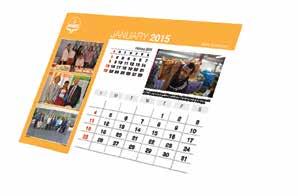





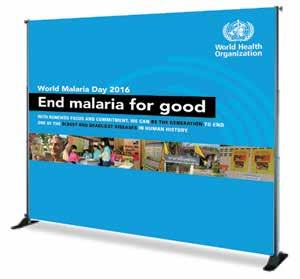

At the P4G Summit on April 16 in Hanoi, Danish State Secretary for Foreign Affairs
Lina Hansen met with Vietnamese
Deputy Prime Minister Bui Thanh Son to boost cooperation in green growth and sustainability.
Vietnam urged Denmark’s sup-
port in institutional reform, technology transfer, and human resource training, as well as backing the EUVietnam Investment Protection Agreement and removing the EU’s IUU “yellow card” on Vietnamese seafood. Deputy PM Son encouraged Danish investment in renewable energy, green infrastructure, and the marine economy.
Ms. Hansen reaffirmed Denmark’s commitment to Vietnam’s green development and welcomed deeper collaboration in trade, technology, and digital transformation. Danish companies expressed strong confidence in Vietnam’s investment environment.
Representatives of the Migrant Workers’ Union of Thailand held a press conference in Khon Kaen on March 27, 2025, refuting Deputy Commerce Minister Suchart Chomklin’s claim that only 30 berry pickers had faced mistreatment abroad. The union stated that over 4,000 had been affected, accusing Suchart of downplaying the issue.
“What he said is mostly untrue,” said Secretary Maliwan Athanu, a former berry picker. While the contract promised €9/hour and farm work, workers were sent to forests after just 20 days. Living conditions were poor—400 people crammed into a building with few bathrooms—and workdays exceeded eight hours with no weekends off.
Suchart’s 2022 visit to Finland was described as staged by recruit-

ment agencies. “Only the well-fed workers were shown. The rest of us were out in the forest,” said affected worker Petchnarin Busathip. Promised wages and income guarantees never materialized, and some workers received only €50 as a “consolation payment.”
Treasurer Sailom Suwanta described the experience as “living like slaves,” with harsh conditions, inadequate food, and deductions even for toilet paper. “Only 10% received the 100,000 baht you promoted. Others returned in debt—some even with negative earnings.”
Union Coordinator Oranuch Pholpinyoh presented records contradicting Suchart’s claims. From 2006 to 2024, 4,025 complaints were filed—760 for Finland and 2,665 for Sweden. Many workers returned with an average debt of 170,000 baht, having borrowed from family, banks, and loan sharks.
“Some were driven to suicide. Others had to sell their land or livestock. The promised income and support funds never came,” Oranuch said.
The union concluded:
“We condemn Suchart’s false statements. Thousands—not just 30—suffered from exploitation and broken promises. We demand justice, reparations, and real accountability.”
Aman has been detained in Sweden on suspicion of spying on members of the Uyghur community for Chinese intelligence services, according to the Swedish Prosecution Authority.
On 9 April 2025, a court in Stockholm ordered the man held in custody pending further investigation. His nationality has not been disclosed.
“The man is suspected of illegally collecting information on people in the Uyghur environment on behalf of the Chinese intelligence service,” said prosecutor Mats Ljungqvist.
The Chinese embassy in Sweden told Reuters it was unaware of the case and declined to comment.
Uyghurs are a predominant -

ly Muslim ethnic group from China’s Xinjiang region. Human rights groups have accused Beijing of serious abuses against them, including
mass detention. A 2022 UN report said these actions may amount to crimes against humanity — a claim China denies.



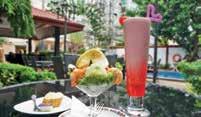

Hong Kong’s Centre for Food Safety (CFS) has suspended imports of poultry meat and products, including eggs,
from Vesthimmerland Municipality in Denmark due to an outbreak of highly pathogenic H5N1 avian influenza.

The decision, announced on Monday, 14 April 2025, follows notifications from the Danish Veterinary and Food Administration and the World Organisation for Animal Health (WOAH). The suspension takes immediate effect and aims to protect public health in Hong Kong.
According to Hong Kong’s Census and Statistics Department, the city imported approximately 960 tonnes of frozen poultry meat and 90,000 poultry eggs from Denmark in 2024.
The CFS stated that it is in contact with Danish authorities and will continue to monitor the situation through updates from WOAH and other relevant sources.


By Glenn Malcolm, Cross Campus Advisor Computing, Bangkok Patana School

As educators, we’ve weathered waves of technological innovation, each heralded as the end of traditional teaching as we know it. Calculators were supposed to render the instruction of maths obsolete, and interactive whiteboards were going to revolutionise the classroom.Yet here we stand, still led by the dedicated teachers who form the heart of education.
Presenting at AI For Education, Verso School, Bangkok.
At the recent AI in Education Conference, hosted by Verso International School and 21st Century Learning, this narrative took centre stage. Far from declaring that artificial intelligence will replace teachers, the conference emphasised a more balanced perspective: AI is a tool to enhance teaching, not a replacement for human educators.
This distinction is critical. AI can generate endless practice problems, analyse patterns in student performance, and provide instant feedback. These capabilities free educators to
focus on what truly matters—fostering curiosity, encouraging critical thinking, and supporting students’ emotional and creative growth. Imagine a teacher using AI to generate personalised learning pathways for every student, allowing them to spend more time coaching, inspiring, and connecting.
Dr. John Nash Presenting his Keynote at the conference.
Yet, as the discussions at Verso made clear, AI is no silver bullet [echoing Ethan Mollick more than once]. It cannot replicate the nuanced, lived-in expertise of a teacher. Only a teacher can observe a student’s anxiety, adapt lessons to the energy in the room, or offer the empathy that transforms a struggling learner into a confident one. These human qualities remain irreplaceable, underscoring the importance of augmenting the practice of human educators with artificial intelligence.
The question isn’t whether AI will take over teaching. It’s how edu-
cators and schools can use it creatively, responsibly, and effectively to enhance their work. As participants explored at the conference, the integration of AI must be guided by clear goals, ethical considerations, and an unwavering commitment to the human element of education. Just yesterday, Apple and Dr. Sabba Quidwai were expressing the same sentiments.
The rapid adoption of AI in schools requires robust ethical frameworks to guide its integration which was a recurring theme at the conference. The discussions emphasised that technology, for all its potential, is only as good as the values behind its use.
A powerful example discussed was stakeholder mapping—a process of identifying the roles, concerns, and responsibilities of everyone impacted by AI in education:
For AI to be effective, professional development (PD) must address the diverse needs of teachers. The conference identified three key educator profiles, each requiring a tailored approach:
• Early Adopters: Confident and curious, these teachers need advanced training to use AI in more complex ways and can mentor others.
• Cautiously Interested Teachers: Curious but unsure, these teachers benefit from simple, low-risk AI tools that clearly show value without disrupting routines.
• Resistant Teachers: Sceptical teachers need to see how AI saves time and supports, rather than replaces, their teaching.
Effective PD emphasises hands-on examples and ethical considerations. For instance, a teacher hesitant about AI might try using Hattiebot to simplify lesson planning, experiencing its benefits firsthand. By addressing fears and building confidence through real-world applications, PD bridges the gap between scepticism and adoption.
AI’s transformative potential in education comes with urgent ethical responsibilities. The conference repeatedly emphasised that data privacy, equity, and autonomy are not just technical details but foundational to how schools adopt AI.
For example, AI tools that generate personalised learning exercises or grade assignments must align with clear policies:
• Acceptable Uses: AI can support tasks like grammar checks, but should not complete work meant to reflect a student’s understanding.
• Prohibited Practices: Clear boundaries prevent misuse, such as AI-

generated assignments that undermine academic integrity.
• Assessment Design: Define when AI can assist and when human judgment is essential, particularly for subjective tasks like essays or creative work.
Crucially, AI must enhance equity, ensuring that students from diverse backgrounds can access its benefits without creating new divides. Transparent communication with students and parents builds trust, ensuring that AI supports—not diminishes—the values of originality, creativity, and fairness.
At its core, the conference posed a powerful question: How can AI help us uphold what we value most in education? The answer lies in thoughtful integration, ethical
practices, and a commitment to amplifying—not replacing—the human touch in learning.
The message from the conference was clear: AI isn’t here to replace educators; it’s here to empower them. By embracing ethical frameworks, leveraging practical tools, and tailoring professional development, schools can ensure that AI serves their students, teachers, and communities effectively.
This is the future of education: where human expertise and artificial intelligence work hand in hand to inspire future learning.

Nordic countries have changed their travel advisories regarding traveling to the United States primarily because of concerns related to LGBTQ+ rights of transgender and non-binary travelers. These advisories have been prompted by policy changes under the Trump administration that have significant implications for such individuals.
Denmark and Finland have updated their travel advisories to caution transgender and non-binary citizens about potential issues when traveling to the U.S. Denmark advises individuals with an “X” gender marker or those who have changed their gender to contact the U.S. Embassy in Copenhagen before traveling. The reason is the recent changes to the U.S. Electronic System for Travel Authorization (ESTA) application, which only allows “male” or “female” gender designations.
Finland warns that U.S. authorities may deny entry if a traveler’s passport gender does not match their sex assigned at birth. Finnish citizens are advised to verify entry requirements with U.S. authorities in advance.
Norway has also updated its travel advisory in response to U.S. policy changes. The Norwegian Ministry of Foreign Affairs states that U.S. authorities only accept “M” or “F” as gender indicators on travel documents. Travelers must indicate their gender at birth when applying for an ESTA or visa.
As of now, Sweden has not issued a specific travel advisory concerning transgender or non-binary travelers to the U.S. However, given the evolving nature of international travel policies, Swedish citizens are encouraged to stay informed about potential changes.
These advisories are in re -
sponse to a U.S. executive order issued on January 20, 2025, which mandates that federal identification documents reflect the sex assigned at birth, eliminating recognition of non-binary or changed gender identities on official documents.
Travelers from the Nordic countries are advised to consult their respective foreign ministries and the U.S. Embassy for the latest information and guidance before planning travel to the United States. Or not to go unless it is essential.
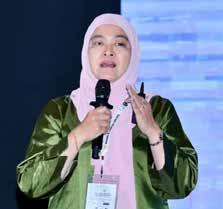
Danish companies are among the early foreign investors showing strong interest in the new Johor-Singapore Special Economic Zone (JS-SEZ), particularly in the medical and pharmaceutical sectors, according to the Iskandar Regional Development Authority (IRDA).
At the 32nd National Real Estate Convention on 17 April 2025, Maimunah Jaffar, IRDA’s strategic driver director, said Danish firms — along with those from China and Australia — are exploring integrated operations in the zone. “When parent companies visit with delegates, it
shows serious intent,” she noted.
The recently launched Iskandar Malaysia Facilitation Centre, a onestop hub for streamlining investment processes, has received over 250 enquiries since February.
Some investment announcements may come within 2025. Danish firms are seen as strong contenders in pharmaceuticals and medical devices — key sectors targeted by IRDA.
Investors are also exploring large-scale operations and forming sector-based clusters, with growing interest from companies currently based in Singapore.
Sweden has pledged USD 12.7 million in humanitarian aid to support over a million Rohingya refugees from Myanmar and vulnerable host communities in Cox’s Bazar, Bangladesh.
According to the Embassy of Sweden in Dhaka, the funding will be channeled through eight partners: UNHCR, WFP, Norwegian Refugee Council, Islamic Relief, Action Against Hunger, Save the Children, and the International Rescue Committee. The aid will support food, nutrition, healthcare, protection services, education, water and sanitation, and services for survivors of gender-based violence.
“This year, we are increasing our initial allocation compared to last year, because of growing humanitarian needs,” said Swedish Ambassador to Bangladesh Nicolas Weeks.
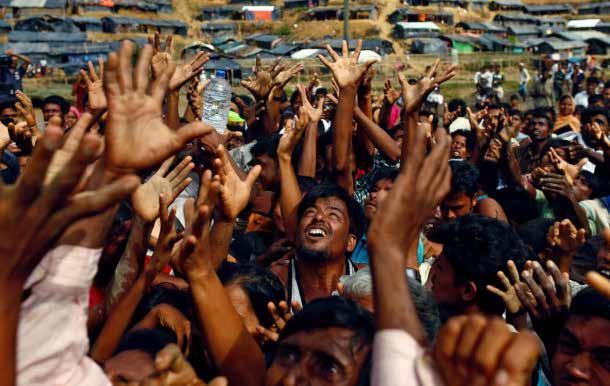
In addition to international agencies, Sweden is also partnering with Start Fund Bangladesh, enabling 26 local and national organisations to respond rapidly to emergencies.
The Swedish government stated the contribution reflects its commitment to effective humanitarian response and support for UN-led efforts.

Meet Jane Kasemsarn, a young, beautiful, and intelligent Thai woman, a devoted Pilates practitioner, a model, and the girlfriend of a young Swedish man.
By Agneta de Bekassy

Igot to know Jane about a year and a half ago and was impressed, not only by her beauty but also by her elegance and intelligence, not to mention her ability to learn the Swedish language.
Either Jane has a true ear for languages, or perhaps Swedish is a language that is relatively easy for Thais to learn? She doesn’t think she has an ear for languages at all, and she admits that she thinks the pronunciation of many Swedish words is hard. Jane also participated in an exchange program in Spain but says that she has forgotten how to speak Spanish.
I wish that after 179 hours of Thai classes and 18 years in the country, I could speak even a fraction as well as Jane has managed to learn Swedish in such a short time.
Sure, one might say that having a Swedish boyfriend makes it less surprising, but I’m convinced that even if I had had a Thai husband, I still wouldn’t have learned Thai the way Jane has learned Swedish. She explained to me, as we sat down talking about Sweden versus Thailand, that she and her boyfriend mostly speak English with each other, but she feels it’s important to try to understand and speak her partner’s language to some extent.
“My boyfriend also makes an effort to learn Thai,” she says with a smile.
Jane was born and raised in Bangkok. She has four siblings. She went to KIS International School until her high school graduation, and after that, she went to Chulalongkorn University for her bachelor’s degree, majoring in language and culture.
I feel it’s important to try to understand and speak my partner’s language to some extent.
She comes from a family that runs its own business, which manufactures corrugated cardboards and boxes. She worked for a while in the company but realized it wasn’t her passion; she wanted to do something more meaningful.
As she has always been interested in health and wellness, she got the idea of becoming a Pilates instructor. In 2024, she signed up for a teacher training program in Portugal, and a few months later, she started teaching.
I have heard from some SWEOR who are taking classes with Jane that she is an excellent instructor. I asked if she thinks Pilates is for everyone, and she busted out, “Absolutely, as it focuses on core strength, flexibility and mobility, which everyone in all ages will benefit from.”
Jane is also a popular model and has done several fashion shows in Bangkok.
“I got into modelling by accident, about 10 years ago,” she says.
“Mostly I have been modelling for Thai brands, and my longest relationship is with the designer Vvon Sugunnasil.”
Having lunch alone in a café one day, Jane was approached by a young man. They sat and talked, and suddenly there was “Love in the air.” The young man was a Swede. I asked Jane what it is that makes Scandinavian men so attractive to Thai women.


“Well, at first the Swedes can be a bit reserved, but as soon as you get to know them better, they are really friendly.”
I was also curious to find out what a Thai woman thinks about Swedish traditions, culture, food and last, but not least, the Swedish climate.
“You Swedes have so many more traditions, and to me, it seems to be very important for Swedes to go all in. You love to decorate your homes at Christmas, Easter, Midsummer etc. A Christmas without the traditional Christmas buffet with all delicacies is not acceptable, the same is for Midsummer, I’ve noticed. You enjoy and love your Crayfish parties.”
“I love Swedish food, especially Toast Skagen, Herring, Janson’s Temptation, Pytt i Panna, you name it. Your food is much milder than our traditional Thai dishes. I must also say, I have never been eating so much “GODIS” (candies) as during my visits to Sweden.”
Here Jane is right, we Swedes eat about 15 kilos of candies per person per year, quite a lot.
Talking about climate, Jane admits that the whole year in Sweden might not be her cup of tea, but she just loves the summers in Sweden. She has noticed how we really love and appreciate nature. We enjoy having picnics in the parks and strolling through the forests.
“We don’t do that much in Thailand,” she adds. Her dream in the future would be to spend half the year in Sweden and the other half in Thailand. Swedish winters can be hard, she thinks, better then to be in warm and sunny Thailand. I think that is a dream she shares with many of us.
Jane’s future dream, or let us say plan, is to have a family of her own, and a beautiful home where she and her future husband could raise their children, and a Pilates studio where she could practice and teach.
Let us hope that her dream comes true!
Denmark has made a strategic return to Malaysia, rebuilding its diplomatic presence with renewed ambition. Leading this resurgence is H.E. Kirstine Vangkilde Berner, a seasoned diplomat with two decades of experience, now taking on her first posting as Denmark’s envoy.
By Joakim Persson
Ambassador Berner is at the forefront of strengthening bilateral ties and has been entrusted with establishing and leading Denmark’s new embassy in Kuala Lumpur. While the embassy’s permanent location is set to open by the end of 2025, operations are already in full swing. Underscoring Denmark’s renewed commitment to Southeast Asia, Foreign Minister Lars Løkke Rasmussen visited Kuala Lumpur in December 2024, engaging in high-level diplomatic discussions with the Malaysian government and officially inaugurating the embassy.
“The Danish Foreign Minister’s visit marks a strong and deliberate signal of our wish to strengthen our bilateral relationship with Malaysia. Malaysia is an important partner to Denmark and a key country in Southeast Asia. We have decades of long and strong relations with Malaysia to build on, and we want to foster an even stronger, equal partnership with Malaysia and contribute as an equal, future-focused ally.
The last visit by a Danish Foreign Minister to Malaysia was back in 2007. However, we have, of course, had other high-level visits over the years — the most recent being the Malaysian Foreign Minister’s visit to Denmark in 2022. Our Malaysian partners and interlocutors have been very welcoming and — I must say — interested, constructive, and helpful. There is definitely a mutual interest in strengthening the bilateral relationship between the two countries,” says Ambassador Kirstine Vangkilde Berner.
I compare what we have to do here with a start-up business because you really set up everything – the procedures, logistics, administration, etc.
Since arriving in August 2024, Ambassador Berner and her family have been excited to begin their new chapter and have found Malaysia to be a welcoming new home.
“We really like it here; we find Malaysia very welcoming and easy to settle into — also as a family.”
Joining the Ambassador are three family members: her husband, Michael, and two sons — one of whom will join them later this year after completing a year at boarding school in Denmark. Michael also has two grownup children back in Denmark and works part-time remotely as a lawyer.
“It’s very important to us that he can maintain his own career and worklife balance while we are in this special situation as a family, moving every third or fourth year.”


We strongly believe that Danish companies have good solutions to offer in support of this green transition.
Our main export from Denmark to Malaysia is within this area, so there’s a lot to do there. We are also looking to support new areas of collaboration going forward. We’ve already experienced a lot of interest from Danish companies in other sectors, so I’m quite confident that the Embassy will be supporting a broader range of commercial activities here,” says the Ambassador.
The second major focus area, as the new Royal Danish Embassy gets its feet on the ground, is the green transition.
“During the Foreign Minister’s visit, we launched the Green Transition Alliance, which is the Embassy’s new strategic flagship project. Major Danish companies active in various fields within the green agenda and already present in Malaysia have joined this new alliance with the aim to engage in an equal partnership with Malaysia in support of the green transition agenda. We’re seeing very ambitious goals and national roadmaps in Malaysia for the green agenda, and we strongly believe that Danish companies have good solutions to offer in support of this green transition,” states the Ambassador, who advocates for strong public-private partnerships to move the green agenda forward.
The Ambassador highlights that Danish companies possess strong expertise in several key areas, including renewable energy, energy efficiency, water management, environmental sustainability, and healthy urban living.
Most recently, she served as Deputy Director for the Consular Affairs Department in the Ministry of Foreign Affairs. “I possess strong competencies in crisis management and consular affairs; helping Danish citizens in distress abroad. Having dealt with very difficult consular cases gives some kind of robustness because you often navigate in a crisis situation where you have to react quickly, assess and analyze the situation, while you also have a very strong focus on the person in need. That was a really interesting, rewarding, and also hectic period in my professional career,” says Ambassador Berner.
Now, as Ambassador, her focus has shifted towards business and trade: “We have significant Danish commercial interests here and a strong commercial profile. Assisting Danish companies in Malaysia, of which we have around one hundred, is a core activity for the embassy. We will work to expand the commercial activities and investments between Denmark and Malaysia.”
One of the key focus sectors will be food and agriculture.
“We have a dedicated food and agriculture specialist posted to the embassy and a standing government-togovernment Memorandum of Understanding since 2016.
The Embassy’s focus on the green transition is further strengthened by the expertise of Mr. Mark Perry, Head of Trade at the Danish Embassy in Kuala Lumpur. “He comes with solid experience from the region, having previously held the same role at the Danish Embassy in Singapore, with a particular focus on the green sector,” says the Ambassador.
Officially, the Ambassador has visited Penang as part of a visit from the EU: “It was a great opportunity to visit some companies, the Penang Institute, and of course also engage in dialogue with the state government to really witness and see for oneself the impressive ecosystem in Penang, and also the opportunities for Danish and European companies there.”
This was only the first of many trips for Ambassador Kirstine Vangkilde Berner as she continues to engage with other Malaysian states and further explore opportunities for Danish business.
And yes, the “very close” Nordic collaboration continues, including through the annual Nordic Day, which is arranged jointly by the Nordic embassies around a theme - incorporating joint discussions with partners and networks in Malaysia.
So, yes, Denmark is back in Malaysia. But more than that - it’s here to lead as a trustworthy and reliable Green partner.

A special event to commemorate 50 years since Vietnam’s Reunification Day (April 30, 1975 – April 30, 2025) not only honored Vietnam’s historic achievement of national unity after a long and devastating war, but also reaffirmed the enduring friendship between Vietnam and Sweden, highlighting a shared vision for deeper cooperation and mutual progress in the years ahead.
By Nguyen Thu Huyen
Building bridges of understanding between people creates connections resilient to even the strongest political storms.
– Lars Adermalm
A profound ceremony in Stockholm highlighted the historic bonds between Vietnam and Sweden, celebrating five decades of unwavering friendship, solidarity, and forward-looking partnership.
The event gathered a distinguished audience, including Robert Rydberg, former Swedish Deputy Foreign Minister, Daniel Wolven, Head of Department for Asia, the Pacific Region and Latin America, Swedish Ministry for Foreign Affairs, Erik Anderson, International Secretary of Sweden’s Communist Party, and Lars Adermalm, a
long-time friend of Vietnam. The Vietnamese community, Swedish alumni who had worked in Vietnam, and representatives of local organizations added further significance to the gathering.
In an exclusive interview with ScandAsia, Vietnamese Ambassador Tran Van Tuan emphasized that April 30 was not simply the end of three decades of relentless war, but the dawn of a new era where national independence, territorial unity, and the construction of socialism across a unified Vietnam became possible.



The victory of the Spring Offensive laid the groundwork for what we call ‘the Era of the Nation’s Ascent.’
– Ambassador Tran Van Tuan
The relationship between Vietnam and Sweden has evolved significantly over the past five decades. Initially forged in the crucible of wartime solidarity, it has matured into a multifaceted partnership encompassing economic, technological, and cultural collaborations. Ambassador Tuan elaborated that Sweden remains a trusted development partner, with historical aid contributions exceeding USD 3.46 billion. Today, Swedish companies such as Ericsson, ABB, Electrolux, AstraZeneca, Volvo, IKEA, and Syre play crucial roles in Vietnam’s economic landscape. Notably, Syre plans to invest USD 1 billion in a high-tech polyester fiber recycling plant, reflecting a shared commitment to a greener future.
As global dynamics shift, both Vietnam and Sweden are setting their sights higher. Vietnam is pressing ahead with Resolution 57-NQ/TW on science, technology, innovation, and digital transformation, seeing Sweden as a key knowledge-sharing partner in this journey.
“We view Sweden not merely as an investor, but as a strategic collaborator in Vietnam’s green growth and digital transformation initiatives,” Mr. Tuan emphasized.
Robert Rydberg noted that the strong foundation of mutual support built during the past decades provides an excellent basis for further advancing the relationship between Vietnam and Sweden in the future.
“Our two nations are like long-standing friends, whose shared history strengthens their vision for deeper
cooperation and mutual growth,” Mr. Rydberg emphasized.
Beyond official frameworks, the human connections between the two nations remain irreplaceable. Stories shared by Swedes who had worked in Vietnam and testimonies from Vietnamese expatriates in Sweden highlighted the enduring personal bonds.
“Building bridges of understanding between people creates connections resilient to even the strongest political storms,” Mr. Adermalm poignantly stated.
Looking ahead, both nations aim to deepen their collaboration in areas like green growth, digital transformation, education, and innovation. Ambassador Tuan emphasized that the spirit of 1969 endures, inspiring a continued commitment to solidarity and shared progress.
As the evening came to a close, the event reaffirmed not just a partnership built over the past fifty years, but also a shared future driven by solidarity, innovation, and trust.


She’s graced magazine covers, walked red carpets, and captured hearts on-screen, but on a warm April afternoon in Bangkok, Praya Lundberg—Thai-Swedish actress, model, and humanitarian—stood before the press with a different purpose: to speak for those without a voice.

Known for her roles in Thai dramas and the hit series White Lotus, Praya (also known as Praya Suandokmai) has become just as celebrated for her work off-screen as the UNHCR’s first Goodwill Ambassador from Southeast Asia and now as an advocate for animal rights with PETA.
Born Nataya Lundberg on 28 March 1989 to a Swedish father and a Thai mother, she grew up in Bangkok and attended International School Bangkok (ISB), later earning a bachelor’s degree from Oxford University in the UK. Her acting career began at a young age in Thai television dramas, where she quickly gained popularity, and she has since appeared in both Thai and international films, as well as on the covers of top fashion magazines around the world.
Beyond the glamour, Praya is deeply passionate about humanitarian causes, including education, gender equality, and refugee rights. Appointed as the first Goodwill Ambassador for the UNHCR in 2017, she has continued to use her voice to make a difference. A strong advocate for a healthy lifestyle, she often participates in charity runs and wellness events and launched her own wellness brand, “Nola’s Health,” in 2015.
During the press conference on 24 April at the elegant Sindhorn Kempinski Hotel in Bangkok, I had the chance to ask Praya if she spoke Swedish. She smiled and answered, “No, I don’t understand or speak Swedish, but I’ve visited Sweden.” Interestingly, she addressed the media entirely in Thai, which I must admit I didn’t fully understand, but her main message came through clearly: don’t buy pets—adopt them instead.
I had imagined her arriving dressed like an angel from a Victoria’s Secret show, but she appeared casually in jeans and a T-shirt bearing the PETA logo. Still, two large posters featuring Praya dressed as an angel with her dog, Pirate Arthur, were displayed on stage. Pirate Arthur, however, stayed home that day.
In 2023, Praya married Vietnamese-American businessman Quoc Cao at Hotel Bel-Air in Los Angeles, a match made through her mother. The wedding, attended by 200 guests from around the world, saw her wearing a Valentino wedding gown and a Vivienne Westwood dress for the reception. In lieu of gifts, the couple asked for donations to the “I Stand With My Pack Dog Rescue” charity. They plan to have one child in the future—and, no doubt, many adopted dogs.
At the press event, Praya was introduced by Khun Paul Narula, a PETA representative who has worked with the organization for 20 years. PETA (People for the Ethical Treatment of Animals) is an American animal rights group advocating for better legal protection and treatment of animals worldwide.
Beyond the glamour, Praya is deeply passionate about humanitarian causes, including education, gender equality, and refugee rights.

The audience was mostly Thai media—I’m fairly sure I was the only non-Thai journalist present. A delightful vegetarian and vegan buffet was served, prepared by a German chef formerly of the magnificent Hotel Bürgenstock in Lucerne, Switzerland. While waiting for some media colleagues who had mistakenly gone to the other Kempinski hotel near Siam Paragon, I had the pleasure of chatting with the chef in German.
I must confess, I’m probably one of the few who haven’t seen White Lotus, but after meeting Praya, I’m curious—I just might have to watch it now.
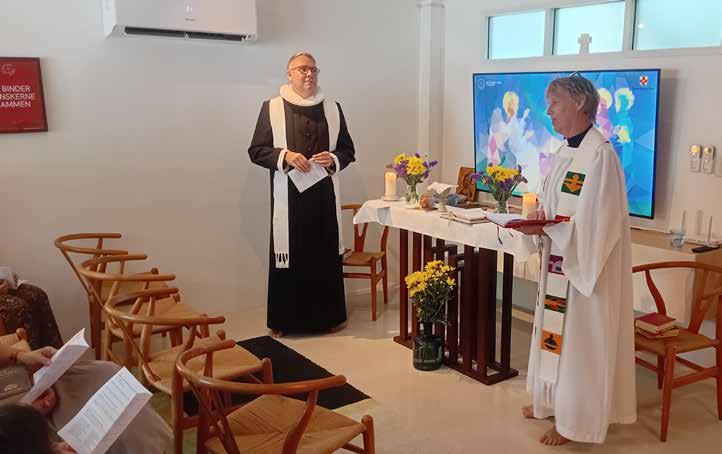
So, another Easter has passed. I remember Easter when I was young and how incredibly boring and gloomy it felt, except for Easter Saturday when we received candy-filled Easter eggs and a delicious Easter buffet was laid out. Good Friday, on the other hand, was very long. Only Christian programs were shown on TV, cinemas were closed, as were discos and clubs. We young people had a hard time making time pass.
By Agneta de Bekassy
Danish brewer Carlsberg is strengthening its presence in Myanmar through a lo -
cal joint venture, aiming to catch up with market leader Heineken. Sales are recovering post-pandemic, with

growth across wholesale and retail channels.
Success has come largely through the local Yoma brand, known for its affordability and high alcohol content. Carlsberg also plans to introduce its international Tuborg label to attract more brand-aware consumers.
The company highlights that 99% of its employees in Myanmar are local, reflecting its long-term commitment despite ongoing challenges.
Since the 2021 military coup, international brands have gained popularity as consumers shift away from military-linked domestic beers.
In response to Thailand’s growing cashless society, IKEA has announced it will stop accepting cash payments at some of its stores, effective April 21, 2025. Social media users have shared mixed reactions.
The Swedish furniture and home decor brand made the announcement via its official IKEA Thailand Facebook page, stating that starting immediately, three branches — IKEA Bangna, IKEA Bang Yai, and IKEA Chiang Mai — will no longer accept cash payments. Customers at these locations can pay using one of the following four methods:
QR code
Credit and debit cards
IKEA gift cards
IKEA Family points
While the move appears to align with modern consumer be -

havior, where most people prefer cashless payments, reactions on social media have been divided. Some users expressed disagreement, arguing that cash should still be available as an option for those who are not comfortable with digital payment methods. Others pointed out that
cash should be accepted in cases where online banking systems fail or for people without credit or debit cards.
Currently, IKEA operates five branches in Thailand: IKEA Chiang Mai, IKEA Bangna, IKEA Bang Yai, IKEA Phuket, and IKEA Sukhumvit.
Two Thai-Swedish footballers, Aricha “Siri” Sirichang and Matilda Mårtensson, participated in the Thailand women’s national team training camp held at Jaifah Academy in Lopburi, which concluded on April 2, 2025.
Aricha “Siri” Sirichang is a Midfielder and plays for Mariestads BoIS FF in Sweden. Matilda Mårtensson is a Left Winger and plays for Timrå IK in Sweden.
The national team is preparing for the 2026 AFC Women’s Asian Cup qualification tournament, scheduled from June 23 to July 5, 2025. Thailand is placed in Group B alongside India, Mongolia, Timor-
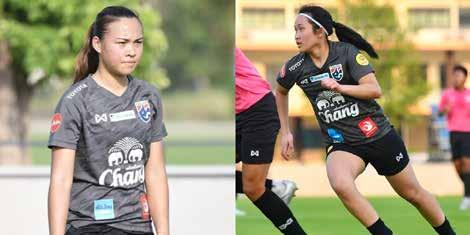
Leste, and Iraq, with all matches to be held in Thailand.
This qualification tournament also serves as the initial stage for
Asian qualification for the 2027 FIFA Women’s World Cup, which will be hosted in Brazil from June 24 to July 25, 2027.
The Sikh tradition of langar— serving free vegetarian meals to all, regardless of background—has drawn the attention
of Swedish social anthropologist Dr. Annika Winell, who is based at Universiti Malaya in Kuala Lumpur.
Dr. Winell has been studying

how this practice promotes compassion and cross-cultural understanding in Malaysia’s diverse society. At Sikh temples (gurdwaras) such as Gurdwara Sahib in Kuala Lumpur, volunteers of all backgrounds help cook, serve, and clean, reflecting the Sikh values of equality, humility, and service.
She describes langar as “a quiet, powerful practice that brings people together,” and highlights its role in bridging ethnic and religious divides. Originally introduced to the tradition during a visit to India, Dr. Winell chose Malaysia for her fieldwork due to its cultural diversity. She hopes her research will help more people appreciate how religious practices can foster social cohesion in modern societies.
Finnish children’s book author
Mauri Kunnas and his wife Tarja visited Bangkok in connection with the 53rd National Book Fair & Bangkok International Book Fair 2025, according to the Embassy of Finland in Bangkok.
Mauri Kunnas is widely known for his popular illustrated books for children, particularly the series featuring the sleepwalking goat Mr. Clutterbuck. His books have sold more than 10 million copies worldwide, been translated into 37 languages, and published in 36 countries — including Thailand.
The Finnish Embassy in Bangkok hosted the couple during their stay and expressed pride in seeing Kunnas’ work published in Thai for local children to enjoy.

Malaysian-Norwegian singer, DJ, and creative director
Merete Mei-Jin Noer — previously featured on ScandAsia as Miraculous Mera — has returned to Southeast Asia to launch her artistic rebirth under the name Meramanja
Now based in Asia for a monthlong creative project, Meramanja has been filming music content across Kuala Lumpur, Ipoh, Singapore, and Kota Kinabalu. Her latest single Lari —which means run in Malay— is a collaboration with UK-based producer Homdiggy and blends underground hip-hop with Southeast Asian soul. The song explores love, longing, and the emotional momen-

tum of chasing connection across distance and culture.
The release of Lari is backed by a strong regional marketing cam-
paign combining visual storytelling, TikTok challenges, lyric breakdowns, and fan interaction—aimed at building Meramanja’s presence across Southeast Asia and Norway. DJs in Malaysia have already test-played the track ahead of release, and Meramanja recently met with Sandy Monteiro, former President of Universal Music Asia, to explore future collaborations.
Merete now channels her spirit of resilience into her music. With Lari , she is running full-speed into the next chapter—bridging her Nordic and Southeast Asian roots through sound, storytelling, and bold performance.
Singaporean media Rice recently published a long and beautifully written feature about Joelle Yeo, a Singaporean who now calls Copenhagen home. The article is part of their Singaporeans Abroad series, and it highlights not just Joelle’s journey from Singapore to Denmark—but how she’s embraced the Danish way of life so fully that she now helps others experience it too.
Joelle moved to Copenhagen in 2018 after completing her master’s degree in London, initially for a
job with renewable energy company Ørsted. What was meant to be a temporary move turned into something lasting. Today, she’s not only staying—she’s considering buying an apartment.
In Rice’s feature, Joelle shares what makes the Danish capital so livable in her eyes, from the worklife balance to the city’s countless hidden gems. And while many might guard their favourite spots, Joelle takes a different approach—she’s happy to “ungatekeep” the Copenhagen she’s come to love.

The Danish Embassy in China participated in the EU Culture Street 2025 in Chengdu over the weekend, joining thousands
of visitors in celebrating European culture and values.
At the Danish booth, guests experienced elements of Dan -

ish lifestyle, from a sustainabilitythemed quiz to an immersive VR cycling tour through Denmark’s scenic landscapes. Participants who completed the quiz — which focused on Danish culture and green living — received prizes such as Carlsberg beer, Danisa butter cookies, and Arla Cocio chocolate milk.
The event marked the opening of the 2025 Chengdu Europe Culture Season and coincided with the 50th anniversary of diplomatic relations between China and the EU. It was organized by the Delegation of the European Union to China. According to the embassy, Denmark’s presence aimed to highlight the country’s commitment to sustainability and its renowned cycling culture.

Denmark and Thailand signed two agreements in Bangkok to boost cooperation on sustainability and waste management.
The first agreement, signed on 1 April 2025 at the Danish residence, involves the ASEAN Centre for Sustainable Development Studies and Dialogue (ACSDSD) and the Danish Environmental Protection Agency (DEPA), aiming to advance circular economy initiatives in the ASEAN region.
Later that day, Thailand’s Department of Local Administration (DLA) and DEPA signed a Letter of Intent to strengthen collaboration
on sustainable waste management and support Thailand’s Bio-CircularGreen (BCG) Economy model.
“These agreements reflect our joint commitment to sustainable development,” said Danish Ambassador to Thailand, Danny Annan.
This builds on a 2024 visit by a Thai delegation to Denmark to study circular economy and extended producer responsibility (EPR) practices. Thailand currently generates around 26 million tons of household waste annually, much of which goes to landfills. The partnership aims to improve recycling and reduce waste across the region.
On 17 April 2025, Danish shipping company Norden and Chinese partner Baosheng HK held a steel-cutting ceremony in Taizhou, Zhejiang Province, marking the start of construction on a new multipurpose cargo vessel (MPP).
Designed specifically for Norden, the vessel will be 145 meters long and 22.6 meters wide, with a carrying capacity of 17,500 deadweight tons (DWT). Built for improved energy efficiency under EEDI Phase III standards, it will cruise at 14.5 knots and accommodate

diverse cargo, including containers and oversized goods.
Baosheng HK highlighted several design upgrades, including en -
hanced structure, fuel efficiency, and improved visibility from the bridge for safer navigation.
This project reflects Norden’s focus on fleet modernization and environmental responsibility. The vessel is part of a broader industry trend toward reducing emissions and offering flexible transport solutions.
Baosheng HK reaffirmed its commitment to delivering efficient, versatile, and eco-friendly vessels for the global shipping market.
ASwedish academic has quietly become one of the world’s most prolific contributors to Wikipedia — not in his native language, but in Cebuano, a regional language in the Philippines.
Dr Lars Sigurdsson Johansson, a retired physicist and father of three, is married to a Filipina from Cebu. Motivated by a desire to contribute to her community, he has helped create over 10 million articles on the Cebuano-language Wikipedia using a custom-built bot called Lsjbot.
“I’m not fluent in her language,
but I wanted to help, and this was a way I could do it,” says Dr Johansson. His wife helped develop the original templates used by the bot, especially for articles on geography and species.
While many entries are short, their sheer number has made Cebuano one of the largest Wikipedia editions by article count. The project has sparked debate about quality versus quantity, but Dr Johansson remains focused on expanding access to knowledge.


The Norwegian Business Association Singapore (NBAS) hosted the first NBAS Tech Circle Seminar of 2025 on Wednesday 23 April, focusing on customer-centric innovation and practical strategies for breakthrough solutions.
Held at Antler’s co-working space, the event featured key insights from industry leaders, including Danny Han of Telenor Asia, who highlighted how the telecom industry is evolving into “telecom-tech” by creating more personalized customer experiences. Moritz Schuster
from BCG X Ventures Southeast Asia presented case studies on how companies such as Olam and Singapore Airlines integrate customercentric approaches to successfully launch new ventures. Meanwhile, Erik Ingvoldstad of PayTech Neo introduced his Humanistic Thinking™ framework, which emphasizes empathy and iterative innovation processes.
The seminar was moderated by Arne Kjetil Lian and concluded with networking over pizza and drinks. The event formed part of the Team Europe Networking Series, celebrating Singapore’s 60 years of growth. NBAS hosted the April edition with support from EuroCham Singapore, and sponsorship from Telenor Asia and Antler.
The Danish Ambassador to Thailand, Danny Annan, met on Tuesday 2 April 2025 with Thailand’s Minister of Transport, Su-
riya Jungrungreangkit, to explore ways to boost bilateral cooperation in the maritime sector and promote foreign direct investment.

According to the Embassy of Denmark in Thailand, the meeting included senior officials from the Ministry of Transport, the Port Authority of Thailand, and the Marine Department. The talks focused on opportunities for Danish companies to participate in the Public-Private Partnership (PPP) investment project at Laem Chabang Port — one of Thailand’s key logistics hubs in the Eastern Economic Corridor (EEC).
The discussions highlighted the shared goal of ensuring sustainable port development and safeguarding vital supply chains. Both sides expressed a strong commitment to deepen maritime cooperation and further strengthen the longstanding ties between Denmark and Thailand.
Ms. Mette Møglestue, Deputy Head of Mission at the Norwegian Embassy in Hanoi, delivered opening remarks at a technical meeting on improving access to government e-portals for people with disabilities in Vietnam.
Held on 9 April 2025 and hosted by UNDP Vietnam, the event focused on promoting inclusive digital accessibility.
“Norway is proud to support this initiative and our partnership with UNDP in promoting inclusion and equal access to public services,” said Ms. Møglestue. She reaffirmed Norway’s commitment to advocat-

ing for the rights and dignity of people with disabilities.
The meeting featured findings from the report Assessing the Digital Accessibility of 20 Information Websites of the Ministries and the National Assembly, followed by dis-
cussions on improving its recommendations.
Norway continues to support disability rights through international cooperation, including its collaboration with UNDP in Vietnam.
Malaysia has attracted 97 Swedish manufacturing projects with a total value of RM7.77 billion, contributing to the creation of 5,982 job opportunities, says Malaysia’s Minister of Investment, Trade and Industry, Tengku Datuk Seri Zafrul Abdul Aziz.
The minister shared the update on Monday 8 April 2025 via a post on social media platform X, in which he also welcomed the new Swedish Ambassador to Malaysia, Niklas Wiberg.
According to the minister, the projects reflect Sweden’s confidence in Malaysia as a strategic investment destination. He noted that bilateral trade between the two countries reached RM3.58 billion in 2024, underlining strong and ongoing economic cooperation.

Several well-known Swedish companies are already active in Malaysia, including music streaming platform Spotify, fashion retailer H&M, telecommunications firm Ericsson, vehicle manufacturer Volvo, and fur-
niture company IKEA.
“We hope the economic relationship between Malaysia and Sweden will continue to grow for our mutual benefit,” says Tengku Zafrul.
Sweden’s Ambassador to the Philippines, Anna Ferry, recently paid her first official visit to Transcom Asia, the largest Swedish employer in the country.
Joined by Trade Commissioner Johan Lennefalk and other embassy officials, the ambassador toured Transcom’s facilities in Pasig City and met with company leaders.
Transcom thanked the Swedish Embassy for supporting its engagement with local authorities, including assistance from Pasig City in resolv-

ing operational challenges.
The visit also highlighted Transcom’s employee-focused amenities, such as a gym, pharmacy, game room,
karaoke station, and childcare center.
The visit coincided with Transcom’s 30th anniversary. Founded in Sweden in 1995, the company is now headquartered in Stockholm and operates globally, providing customer service, technical support, and other services across various sectors.
Transcom is majority-owned by Altor Fund IV, with minority ownership by entrepreneur Gunilla von Platen and company leaders.
Sweden, Denmark, and Norway are contributing to Vietnam’s surge in international tourism, with notable growth in early 2025.
Vietnam welcomed over 6 million foreign visitors in Q1 2025 — a 29.6% year-on-year increase and the highest quarterly figure ever, accord-
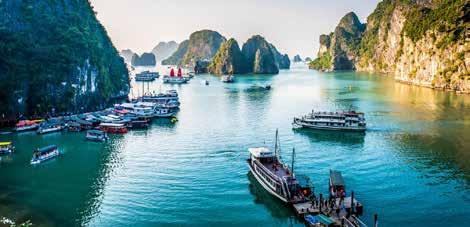
ing to the Vietnam National Authority of Tourism (VNAT).
Arrivals from Sweden rose by 18.7%, Denmark by 17.6%, and Norway by 16.0%, driven in part by Vietnam’s visa waiver policy.
China and South Korea remained the top source markets, accounting for nearly half of all visitors. Other growing markets included Taiwan, the U.S., Japan, Australia, India, and Southeast Asia. Russia saw the largest jump, with arrivals up 110.5%.
VNAT credited visa waivers and stronger marketing for the surge and aims to attract 22–23 million international tourists in 2025.
Thai Airways International is reinforcing its role as a key link between the Nordic region and the Asia-Pacific by offering daily direct flights between Bangkok and Oslo, according to the airline. The full-service route supports both business and leisure travelers with convenient connections in both regions.
The Bangkok–Oslo service allows seamless onward travel to other Nordic capitals, including Stockholm, Helsinki, Reykjavik, and Copenhagen. From Bangkok, passengers can also connect to destinations across the Asia-Pacific such as Tokyo, Singapore, Seoul, Taipei, Sydney, Melbourne, Ho Chi Minh City, Bali, Vientiane, and Phnom Penh.
This development comes as

Thailand and Norway celebrate 120 years of diplomatic relations. As part of the anniversary, Thai Airways will support the “Charity Walk-Run in Oslo” on 22 June 2025, organized by the Royal Thai Embassy in Oslo and the Faculty of Medicine Siriraj
Hospital. Proceeds from the event will go directly to Siriraj Hospital’s fund for underprivileged patients.
Thailand and Norway established diplomatic ties in 1905, following King Chulalongkorn’s (Rama V) historic visit to Norway.

Swedish brothers Ben-David (Bennie) and Dannie Sörum, known in Thailand’s hospitality circles for their creative ventures such as Hyde & Seek Gastro Bar and Rocket Coffeebar, have together with Michael Ray, launched a new wellness initiative called Wilder —a brand combining high-performance hydration products with community-driven fitness events.
Wilder’s signature product is an electrolyte salt mix designed to support fast and effective hydration. The supplement combines minerals like sodium, potassium, and magnesium with L-Theanine, an amino acid known for promoting mental clarity and reducing stress.
The company Wilder was founded by Ben Sörum and Michael Ray. Ben has a long experience in creating healthy beverages, more than 10 years, while Michael is an entrepreneur and a brand builder with an interest focused on wellness.
But Wilder is more than just a drink. Since October 2024, Ben and Mike have also been organizing Wilder Training Club—a weekly HIIT workout held every Sunday morning at Benchakitti Park Amphitheater in Bangkok. The sessions are
free to join, and participants receive WILDER samples to stay hydrated during the workout.
The Wilder brand launched in August 2024, targeting fitness enthusiasts and athletes across Asia with a mission to offer a healthier, sugar-free alternative to traditional sports drinks. The electrolyte formula is Keto-friendly and designed to aid recovery, performance, and overall well-being.
Agneta de Bekassy, the Swedish ScandAsia writer and influencer, met with the brothers behind the brand.
“Many of you might remember Ben-David and Dannie from their earlier days behind the bar—first in Australia and then here in Thailand,” Agneta writes.
“The two young men are both Swedish and have a solid background in hospitality. Together with
their friend, Thomas Ånostam, they started Flow Cocktail, a company that specialized in beverages and events across Asia.”
“They’re even credited with creating Thailand’s first national cocktail, Siam Sunrise, and went on to co-author Tipple Thai, a beautiful cocktail book showcasing Thai fruits and herbs,” Agneta writes.
In 2010, their talents took physical shape with the launch of Hyde & Seek Gastro Bar—inspired by London and New York concepts, it quickly became a go-to hotspot in Bangkok. Just a few years later, in 2013, they introduced Rocket Coffeebar on Sathorn, beloved for its high-quality coffee and cozy atmosphere.
“There are many creative and innovative Swedes who have made their way in Thailand,” Agneta
